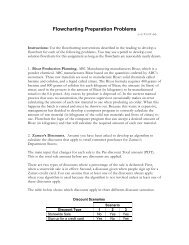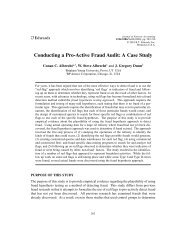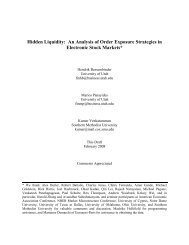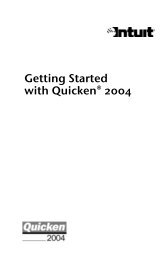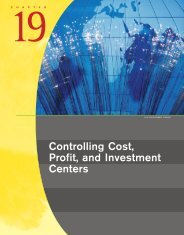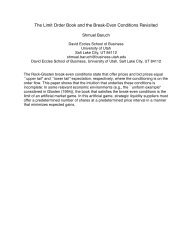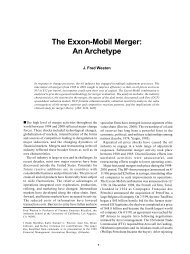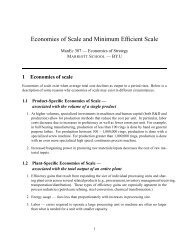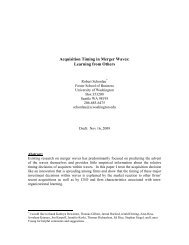why do firms go public? - Marriott School
why do firms go public? - Marriott School
why do firms go public? - Marriott School
You also want an ePaper? Increase the reach of your titles
YUMPU automatically turns print PDFs into web optimized ePapers that Google loves.
is to fund growth <strong>do</strong>es not really answer the question of <strong>why</strong> the entrepreneurs chose an IPO to<br />
fund that growth. Why didn’t management choose to issue debt, presumably a cheaper source of<br />
financing than external equity Surely cash from debt can buy assets as well as cash from equity.<br />
Or, <strong>why</strong> didn’t the entrepreneurs choose to solicit private equity investment to fund its growth<br />
Had the firm already tapped out venture capital (VC) money Was the firm conducting an IPO<br />
according to an optimal capital structure theory or a pecking order of financing theory (both<br />
discussed below) It soon becomes apparent that when trying to ascertain the motives of issuing<br />
entrepreneurs, we must peel back several layers of the onion.<br />
In many cases, researchers studying the IPO hot market phenomenon (a.k.a. IPO waves of<br />
Ibbotson and Jaffe (1975) and Ritter (1984)) discuss motives for <strong>go</strong>ing <strong>public</strong> as determinants of<br />
waves. For example, Lowry and Schwert (2002), studying IPO market cycles, conclude that more<br />
<strong>firms</strong> <strong>go</strong> <strong>public</strong> after periods of high underpricing because positive information has been revealed<br />
through the previous IPOs; and, subsequent IPOs can raise more money than they had previously<br />
thought. Although a solid job of <strong>do</strong>cumenting the relationship between initial returns and IPO<br />
volume, this explanation for IPO clustering falls short of addressing the motives of insiders on<br />
<strong>why</strong> they are considering an IPO in the first place. Have they run out of cheaper debt financing<br />
Do their VCs want to cash out Do they think the high underpricing is a signal that the market is<br />
overvalued and they have a win<strong>do</strong>w of opportunity to exploit Does the founder want to buy a<br />
yacht The same questions can be raised for virtually all of the hot market empirical papers (as in<br />
this example of Lowry and Schwert (2002)) and the theoretical hot market papers, such as Pastor<br />
and Veronesi (2005) who find that insiders tend to <strong>go</strong> <strong>public</strong> after observing improving market<br />
conditions. Thus, the timing of IPOs and the motives of IPOs, though related, are separate<br />
questions.<br />
3



